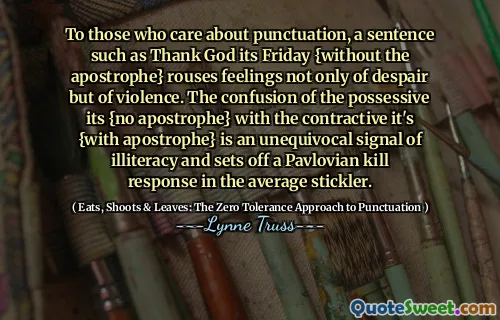
Thurber was asked by a correspondent: Why did you have a comma in the sentence, 'After dinner, the men went into the living-room'? And his answer was probably one of the loveliest things ever said about punctuation. This particular comma, Thurber explained, was Ross's way of giving the men time to push back their chairs and stand up.
In "Eats, Shoots & Leaves," Lynne Truss explores the nuances of punctuation, using a humorous anecdote about James Thurber. When asked about the use of a comma in one of his sentences, Thurber provided an insightful response, highlighting how punctuation can enhance the flow and meaning of a sentence. In this case, the comma served to create a pause, allowing readers to imagine the men taking a moment to push back their chairs before rising.
Thurber's explanation reflects a deeper appreciation for punctuation beyond its grammatical function; it emphasizes how such marks can add context and rhythm to writing. This perspective resonates with Truss's argument that punctuation is vital for clarity and expression, ultimately shaping the reader's experience and interpretation of the text.











